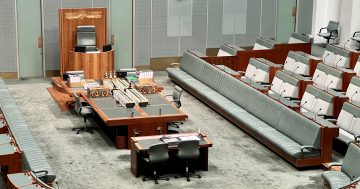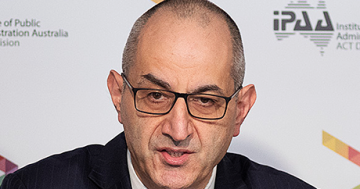
It’s time to make the changes needed to bring pride back to the public service. Photo: Michelle Kroll.
The loudest voices after the release of the Robodebt Royal Commission report were calling for scalps after it confirmed what we all knew already – the whole affair was an absolute scandal that cost lives and tormented vulnerable Australians.
In the public pages of the report we learned how the drama unfolded, how it was allowed to roll on despite numerous warning signs, and how those at the heart of the scandal refused to accept responsibility.
There’s also a sealed section, which has been referred to a lot of different authorities, all of whom have big sticks and enough experience to ensure those that Commissioner Catherine Holmes earmarked for “further investigation” get their comeuppance.
Public servants know who they want to see held accountable for this mess. And judging by the public pages of the commission report, it’s hard to see how those individuals can escape punishment.
But there is something even more important the public service would like to see emerge from this whole episode – a change in the culture and the way the public service works.
When I first came to Canberra in the 1990s it’s fair to say the public service dominated the city. Everyone knew each other, respected each other and, more importantly, respected the work they did.
Career public servants had pride in the work they had done, and were doing. Most had worked for governments of different colours, providing frank and fearless advice on all manners of public policy, safe in the knowledge the government of the day would take the advice for what it was – recommendations on how to shape policy in the best interests of everyone involved.
Those days are long gone. Canberra is no longer a public service city. And many public servants no longer have the pride that goes with such an important job. Frank and fearless both left the building, arm-in-arm, several years ago.
And where did this politicisation of the Australian Public Service leave us? With a Robodebt scandal, where senior public servants felt they needed to give the advice to the government that the ministers wanted to hear, no matter what the price.
Talkback radio and social media outlets have been bombarded with callers and posters, lamenting how fear within the public service has turned it into a lapdog of the government of the day. And these complaints weren’t coming from outsiders, but from public servants who had seen first hand how the walls had come crumbling down.
Some spoke of their almost shame at having to carry out work they didn’t believe in. Others told how they had quit the job they loved, frustrated how their work had been replaced by outside consultants who had no qualms about providing exactly the advice their paymasters were looking for.
So the Public Service Commissioner and the Australian Federal Police will make sure the individuals responsible are made to answer for behaviour. But unless there is a widespread change in culture, and respect for the public service, there are no guarantees all of this won’t happen again.
Frank and fearless are sitting on a park bench somewhere in Canberra. They need to be found, pronto, shoehorned back into the public service, and then given all the support they need to fulfil their role.




















